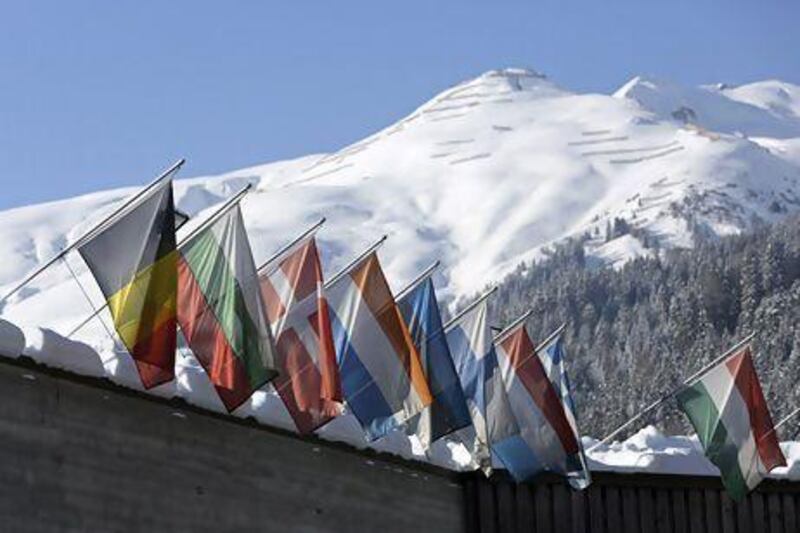As heads of state and businessmen meet in Davos at the World Economic Forum (WEF) on Wednesday, attention will be focused on economic reforms following the Arab Spring.
This year's theme is resilient dynamism. "To be resilient is to possess the ability to adapt to changing contexts, to withstand sudden shocks and to recover from them while still pursuing critical goals," said Klaus Schwab, the founder and executive chairman of the WEF.
This is fitting, given that Europe and the United States, as well as the Middle East, are each grappling with a prolonged fiscal problem, say analysts.
It has been two years since the popular uprisings that toppled leaders in Tunisia, Egypt, Yemen and Libya, but inflation remains in the spotlight for many of those nations. Yet obstacles to the resurrection of their respective economies largely lie in the hands of politicians.
Foreign institutions will undoubtedly focus on what has happened since transitionary and elected governments took power after the ousting of Hosni Mubarak, Zine El Abidine Ben Ali, Ali Saleh and Muammar Qaddafi.
"They will be very vague," said Sebastien Henin, a portfolio manager at The National Investor, an investment company in Abu Dhabi. "But we are still in a political revamping of the region. In Egypt, for the first time ever they have a democracy. They had the Mamluks, the French and the English military. In Tunisia, they are in the middle of big trouble with protests. This is the first time where the people in power have been chosen by the people."
The IMF decided to postpone a drawdown of a much-needed US$4.8 billion (Dh17.63bn) loan to Egypt this month, awaiting a revision of the programme following the recent political upheaval and the rapid devaluation of the currency, the pound.
Separately, the fund is in talks with the Tunisian government for a $2.5bn loan, it emerged on Friday, that would offer the North African nation a hedge against a declining economic environment.
Meanwhile, in the Arabian Gulf, billions of dollars worth of stimulus packages, social plans and mega infrastructure projects have been introduced to boost their respective economies, threatening inflationary pressures.
In the GCC region, the bulk of spending is expected to come from Saudi Arabia and the UAE. The kingdom has earmarked an 820bn riyal (Dh803.08bn) budget for this year, a 19 per cent increase from last year's figure.
In the Emirates, authorities approved a federal budget of Dh44bn, up from Dh41.8bn last year, and part of a three-year Dh133bn plan that will cover "health, education and social benefits for citizens".
Separately, in Abu Dhabi, the Government announced Dh330bn worth of spending over the next five years to build national housing, schools, roads and vital infrastructure work. In Dubai, Sheikh Mohammed bin Rashid, Vice President of the UAE and Ruler of Dubai, announced plans to build 100 hotels and the world's biggest shopping mall.
"The inflation we are seeing on the ground today is coming from housing and food prices, but as many of these mega infrastructure projects come online, they will undoubtedly cause inflationary pressure if they are completed on time," said Saleem Khokhar, the head of equities at National Bank of Abu Dhabi.
"They will have to phase them out. We are just coming out of what has been a difficult period overall. But they will have to phase them out given the scale of the projects."
The Davos meeting will also include a separate session on Syria. The Saudi Prince Turki Al Faisal Al Saud, the Jordanian foreign minister Nasser Sami Judeh and US senator John McCain will be discussing the country's prospects this year as the political crisis continues to worsen.





